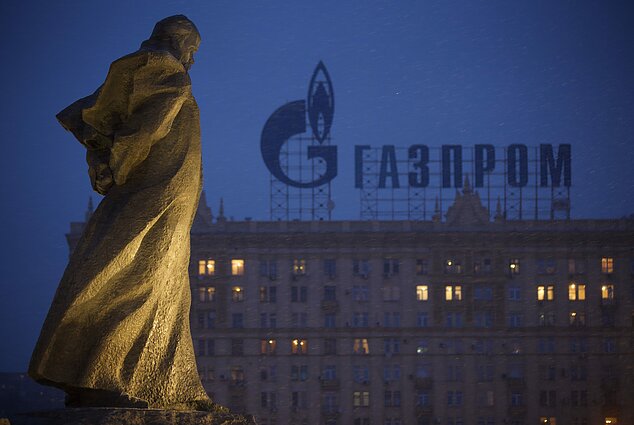
Any shortage of natural gas in Europe due to cuts in deliveries from Russia affects gas prices in Lithuania, even though the country does not buy Russian gas, Prime Minister Ingrida Šimonyte said on July 19. According to Šimonytė, the Lithuanian government is taking all possible steps to make sure the country has enough gas in the winter ahead. However, the prime minister predicts that it will not be easy for the European Union to secure its gas supply if Russia sharply reduces or cuts off gas supplies to the bloc’s countries.
“If the supply of gas is stopped or drastically reduced, as it is now, and the repairs to the Nord Stream 1 pipeline do not end […], then some EU countries are going to have considerable problems filling up their storage facilities and securing gas supplies, especially those that have no alternative supplies,” Šimonytė said. This week, Europe is waiting to see if Russia restarts gas deliveries through the Nord Stream 1 pipeline, as its 10-day scheduled maintenance is due to end soon. The average price of gas in the Lithuanian market area of the GET Baltic gas exchange hit 157.78 euros per megawatt-hour (MWh) on July 20, up from 97.6 euros in May.
With gas prices skyrocketing, Lithuanian cities – in particular Vilnius – are desperately looking for ways to cut heating bills. Among the suggestions is burning mazut, a low quality and very polluting fuel oil, which has drawn criticism from environmentalists and politicians.
Lithuania’s major cities assure that they can cope with the energy challenges and will not run out of heat. Biofuels will help some of them. Klaipėdos Energija, the municipal energy company of Lithuania’s third-biggest city Klaipėda, claims that heat supply is diversified enough, with mazut to be used to make up for any shortfall. Klaipėdos Energija has secured a permission to burn about 3,000 tonnes of this fuel oil.
“Mazut is a polluting fuel and we try and will try not to use it. That is why in the upcoming heating season we are planning to make do with biofuel and a public procurement is being carried out to buy the amount of gas that would be needed to supply heat to consumers,” says Arūnas Liubinavičius, a spokesman for Klaipėdos Energija.
Vilnius also wants to ensure cheaper heat for its residents by using biofuel. However, the capital city will not be able to convert its plants in time. Plans to start earlier were thwarted by the bankruptcy of the Polish company that was supposed to carry out the conversion work. Meanwhile, the new contractors from Finland will not finish before March.
On July 20, the government moved to rescue municipalities, in particular Vilnius, by allowing heat supply companies to buy mazut and diesel through open negotiations. Vilnius Deputy Mayor Valdas Benkunskas said “Today, looking at the price of gas and the price of mazut, the latter is at least 45-percent cheaper.”
The Environment Ministry is less optimistic. According to Minister Simonas Gentvilas, lower costs should be weighed against harm to the environment and people’s health. However, the Environment Ministry gave a reluctant go-ahead for burning mazut this coming winter. “No joy here,” Gentvilas commented. According to the Environment Ministry, Vilnius will have to pay around 24 million euros in pollution taxes for using mazut. “This is Vilnius’ problem and a price for not implementing solutions in time,” said Gentvilas. MP Arvydas Nekrošius, a member of the parliamentary Commission on Energy and Sustainable Development, is also sceptical about burning mazut for heat. Vilnius municipality has not yet made the final decision, but it has precious few options: either expensive gas heating – and public dissatisfaction – or burning cheap but polluting fuel.





























